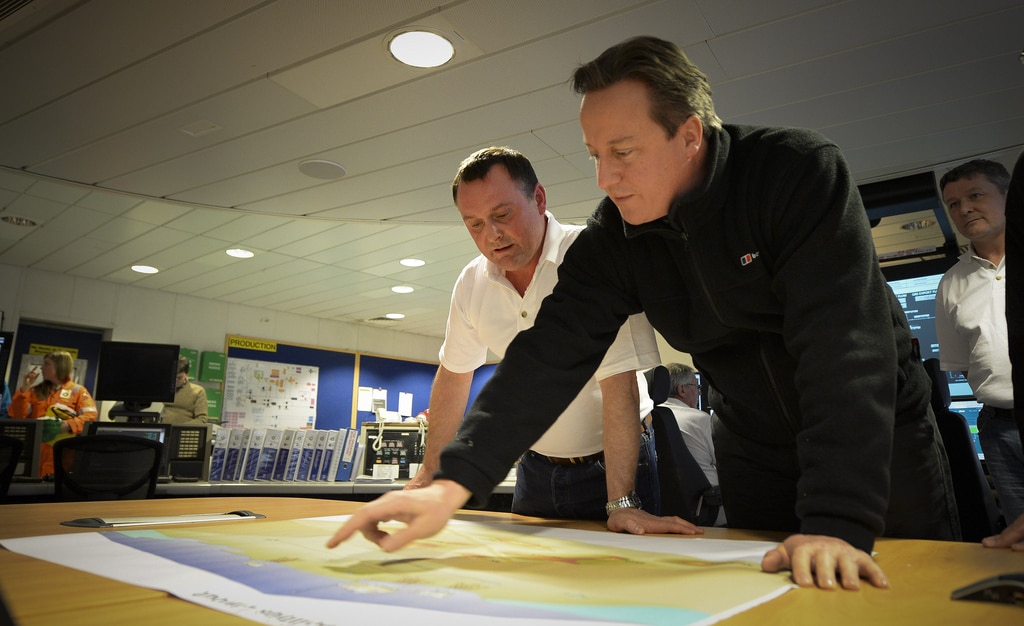Hundreds marched through cities across the UK on Sunday to protest the government’s decline in climate ambition since David Cameron’s Conservative Party gained a majority in last year’s election.
Natalie Bennet, leader of the Green Party, joined some 600 people walking backwards through Whitehall in London, while others gathered in Leeds, Manchester, York, Nottingham, Leicester and Bristol.
Campaigners criticised the many green policy reversals which took place last summer and into autumn, and the fact that the once-strong cross-party consensus on climate change has now fractured.
So to mark the government’s one-year anniversary, we take a look at some of its environmental achievements since last May: the good, the bad, and the ugly.
The Paris Climate Deal
Energy and Climate Change Secretary Amber Rudd worked hard to push for a strong and successful Paris climate deal last December. Under Rudd’s role as one of the ministers leading the EU negotiations for a long-term climate target, the UK joined the ‘high ambition coalition’ which called for a 1.5 degree temperature goal.
However, just one month before the COP21 climate summit Rudd confirmed that the UK is likely to miss its legally-binding 2020 renewable energy targets.
In her much-anticipated November energy reset speech, Rudd then promised the government would outline a new emissions reductions plan – but this will only come at the end of 2016.
And after calls from cross-party MPs, Andrea Leadsom, Energy and Climate Minister, has now pledged to enshrine a zero carbon emissions target into law.
Going forward, one of the first big tests for the government’s climate ambition will come at the end of June when the government is due to outline its fifth carbon budget for 2030.
So far the Department for Energy and Climate Change (DECC) has not confirmed whether it will listen to the Committee on Climate Change’s advice on what needs to be done in order to meet UK and international climate targets.
Cutting the ‘Green Crap’
Since coming into power last May, it seems as though every green policy has been changed or axed in some way.
Beginning last June, DECC announced it would scrap subsidies for new onshore wind projects as promised in its election manifesto.
One month later, solar subsidies and eight other green policies were also under fire. This included killing off subsidies for biomass, ending the zero carbon homes initiative, selling off the green investment bank, watering down incentives to buy greener cars, and allowing fracking in important nature sites.
Then, in November just weeks before the Paris climate conference was set to kick off, the government announced an unexpected end to the £1 billion carbon capture and storage fund – a move widely criticised by many for its short-sightedness and harm to investor confidence in the UK.
Subsidising the Fossil Fuel Industry
While renewable energy subsidies continued to be slashed over the past year by government – which maintains it wants the best for the bill payer – the oil and gas sector continues to receive generous tax breaks.
This is despite the government’s own figures showing that it expects domestic energy bills to be nearly £100 lower in 2020 than previously thought, even with higher subsidies, and the increasingly costly Hinkley Point C nuclear power plant, which is estimated to cost electricity customers at least £4.4bn, with the subsidy bill reaching £20bn, government has stated.
Meanwhile, as low oil prices persist the government is literally paying energy companies to stay in the North Sea. Last year the UK government paid Shell $123 million (£85m) from taxpayer money.
As one study estimates, the UK government offers some of the largest subsidies to the fossil fuel industry out of all the G20 nations – the majority of this comes as tax relief for companies operating in the North Sea.
This theme continued in Osborne’s spring budget announced this March – ironically dubbed as the budget for the next generation – which announced a further £1bn in tax breaks for the fossil fuel industry.
The budget, which came just one day after Leadsom’s zero-carbon emissions target pledge, was widely criticised for its short-termism and failure to prioritise tackling climate change.
Photo: Number 10 via Flickr
Subscribe to our newsletter
Stay up to date with DeSmog news and alerts






